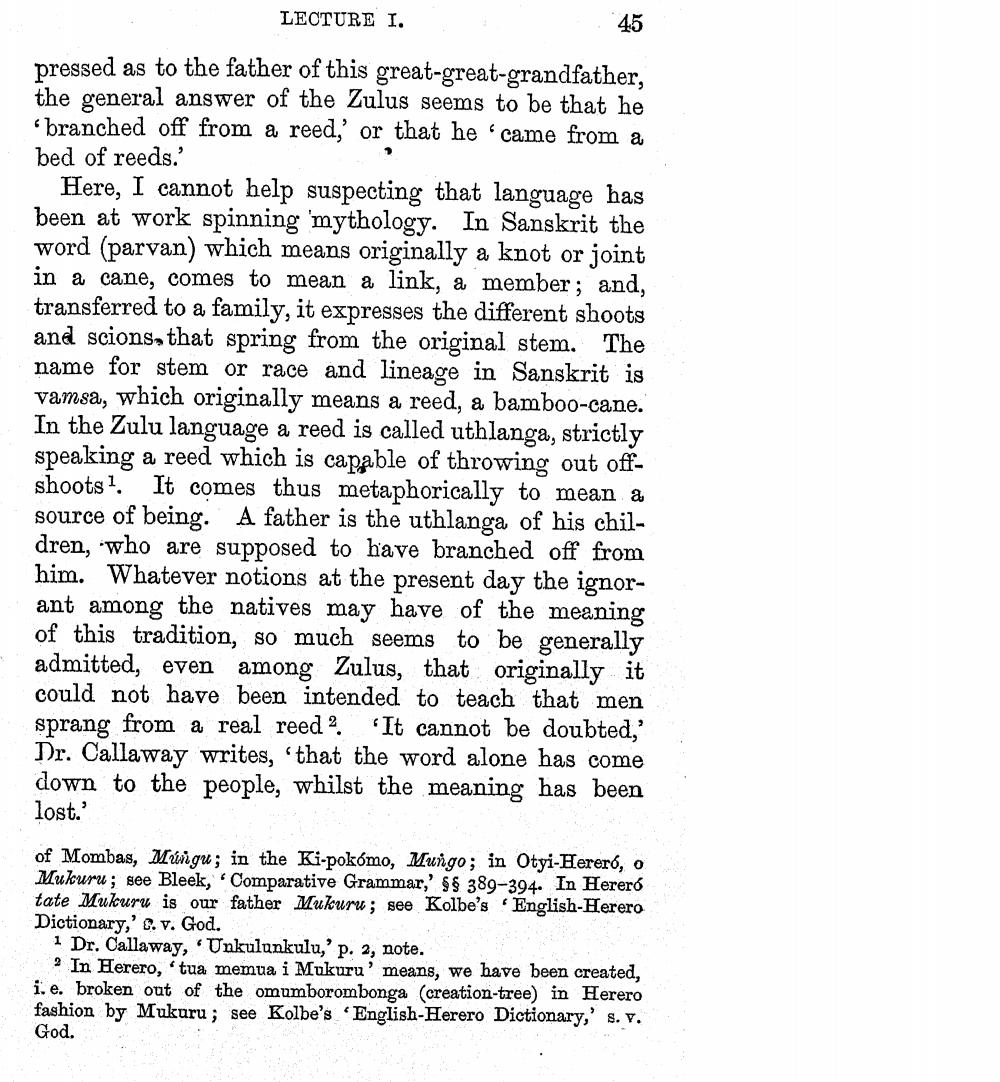________________
LECTURE I.
45
pressed as to the father of this great-great-grandfather, the general answer of the Zulus seems to be that he
branched off from a reed,' or that he came from a bed of reeds.
Here, I cannot help suspecting that language has been at work spinning 'mythology. In Sanskrit the word (parvan) which means originally a knot or joint in a cane, comes to mean a link, a member; and, transferred to a family, it expresses the different shoots and scions, that spring from the original stem. The name for stem or race and lineage in Sanskrit is vamsa, which originally means a reed, a bamboo-cane. In the Zulu language a reed is called uthlanga, strictly speaking a reed which is capable of throwing out offshoots? It comes thus metaphorically to mean a source of being. A father is the uthlanga of his children, who are supposed to have branched off from him. Whatever notions at the present day the ignorant among the natives may have of the meaning of this tradition, so much seems to be generally admitted, even among Zulus, that originally it could not have been intended to teach that men sprang from a real reed? 'It cannot be doubted,' Dr. Callaway writes, that the word alone has come down to the people, whilst the meaning has been lost.'
of Mombas, Múngu; in the Ki-pokomo, Mungo; in Otyi-Herero, o Mukuru; see Bleek, Comparative Grammar,' $$ 389-394. In Herero tate Mukuru is our father Mukuru; see Kolbe's English-Herero Dictionary,' . v. God.
1 Dr. Callaway, 'Unkulunkulu,' p. 2, note.
? In Herero, 'tua memua i Mukuru' means, we have been created, i.e. broken out of the omumborombonga (creation-tree) in Herero fashion by Mukuru ; see Kolbe's ‘English-Herero Dictionary,' s. v. God.




